★★½
“Tries hard to be Trial Hard“
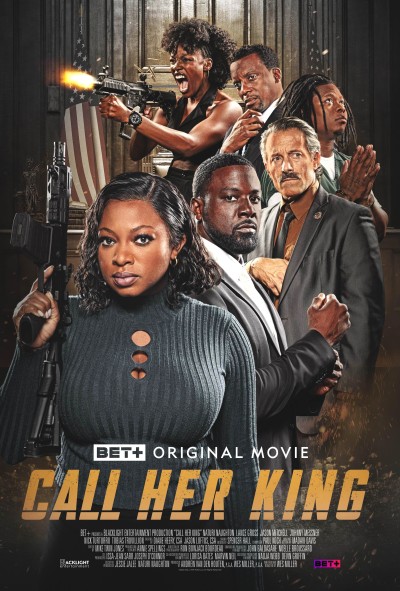 After the impressive surprise which was Jericho Ridge, I figured I should try out another BET Original movie and see how it fared. As the grade above should tell you, the answer is comparatively poorly. While technically adequate in most departments, it’s one of the more implausible Die Hard knockoffs I’ve seen. In a world where No Contest exists, that takes some doing. The high concept here is “Die Hard in a court-house” with Judge Jaeda King (Naughton) about to pronounce sentence in the trial of convicted murderer Sean Samuels (Mitchell). Barely has she said “death”, when the court is stormed by a force led by Sean’s brother Gabriel (Gross), a.k.a. “Black Caesar”.
After the impressive surprise which was Jericho Ridge, I figured I should try out another BET Original movie and see how it fared. As the grade above should tell you, the answer is comparatively poorly. While technically adequate in most departments, it’s one of the more implausible Die Hard knockoffs I’ve seen. In a world where No Contest exists, that takes some doing. The high concept here is “Die Hard in a court-house” with Judge Jaeda King (Naughton) about to pronounce sentence in the trial of convicted murderer Sean Samuels (Mitchell). Barely has she said “death”, when the court is stormed by a force led by Sean’s brother Gabriel (Gross), a.k.a. “Black Caesar”.
King escapes the initial onslaught, along with Sean, his defense attorney, and Stryker (Messner), one of the courthouse guards. Gabriel, however, is not just interested in freeing his brother. He also puts the prosecuting attorney on trial in a kangaroo court, designed to prove the flaws and biases inherent in the system. Much of the film is therefore split between King and her group trying to figure out how to survive, as well as escape, and the courtroom side of things, where nasty little secrets are revealed, such as the prosecutor’s relationship to King having been more than professional. I will say, Miller does a good job of keeping both sides of the story moving forward. It would have been easy for the chattier portions to bring things to a halt: that doesn’t happen.
This aspect is certainly helped by a strong performance from Gross, who manages to avoid the obvious tropes of such a situation, and comes over as smart, well-spoken and committed. He’s no Alan Rickman of course; then again, who is? I found myself, if not quite on Gabriel’s side, at least seeing his point of view and his grounds for extreme action. The main problem is a failure to set King up as credible opposition. Before things kick off, there’s no reason to view her as an action heroine: all we see is her being easily beaten by her martial-arts teacher. Then, suddenly, she – or, rather obviously, Naughton’s stunt double – is kicking butt and spraying bullets around like a grizzled Army Ranger.
Okay, Naughton is far better than Anna Nicole Smith, though that’s a low bar for anyone to clear. She does okay with the dramatic side of things, though the script occasionally gives her little to work with. The broken relationship with her spouse feels like another element poorly lifted from Die Hard, and things like her overhearing another judge go full racist were so obvious as to trigger an eye-roll. Miller does have a nice visual eye, e.g. the shot of the attackers marching towards their target was a genuine stand-out, and there’s enough competence to stop it from being actively annoying. However, its script needed more work, and perhaps a better central concept, to succeed in an over-crowded field.
Dir: Wes Miller
Star: Naturi Naughton, Lance Gross, Jason Mitchell, Johnny Messner





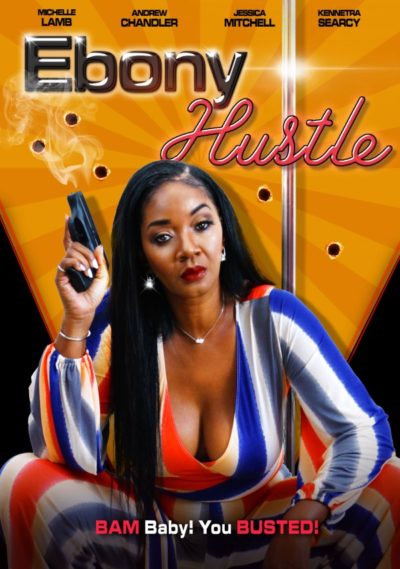 When the best part of a movie is the opening credits, we have a problem. That’s the case here, with an 007-influenced montage that feels as if it cost more than the entire rest of the film to put together. However, by that point, the movie was already on thin ice, because the volume of the music was roughly three times that of dialogue in the pre-credit scene. Lunging repeatedly for the button on the remote is always a red flag for any indie movie, and proved accurate here. The same goes for the gratuitous name-checking of much better black heroines, such as
When the best part of a movie is the opening credits, we have a problem. That’s the case here, with an 007-influenced montage that feels as if it cost more than the entire rest of the film to put together. However, by that point, the movie was already on thin ice, because the volume of the music was roughly three times that of dialogue in the pre-credit scene. Lunging repeatedly for the button on the remote is always a red flag for any indie movie, and proved accurate here. The same goes for the gratuitous name-checking of much better black heroines, such as 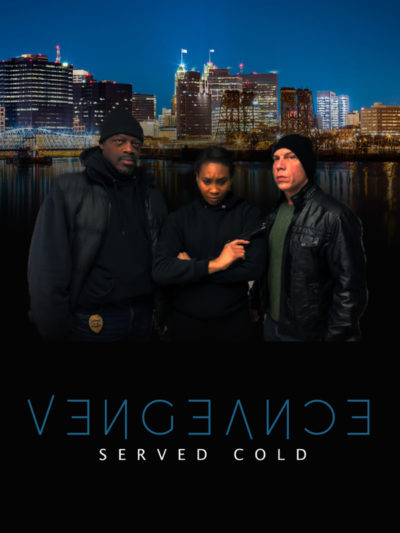 At the age of fifteen, Madison Michaels saw her prostitute mother beaten and killed by Renegade (Cross), a vicious local pimp. His homicide goes unpunished. Ten years later, Madison (Linton) is a counsellor, trying to help drug addicts and hookers get off the streets. She discovers that Renegade is still abusing women, and gets no help from the police, with Detective Straker (Williams) saying he can do nothing based on her hearsay. Against the advice of her friends and sister Lydia (Jeffries), Madison hatches a plan to take the pimp down, and clean the streets of thus piece of scum. Naturally, it doesn’t initially go quite as planned, with the trap set for Renegade backfiring, followed by betrayal from an unexpected direction.
At the age of fifteen, Madison Michaels saw her prostitute mother beaten and killed by Renegade (Cross), a vicious local pimp. His homicide goes unpunished. Ten years later, Madison (Linton) is a counsellor, trying to help drug addicts and hookers get off the streets. She discovers that Renegade is still abusing women, and gets no help from the police, with Detective Straker (Williams) saying he can do nothing based on her hearsay. Against the advice of her friends and sister Lydia (Jeffries), Madison hatches a plan to take the pimp down, and clean the streets of thus piece of scum. Naturally, it doesn’t initially go quite as planned, with the trap set for Renegade backfiring, followed by betrayal from an unexpected direction. 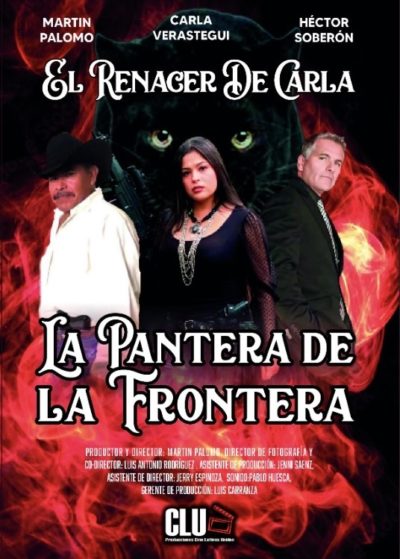 There are times when I can look at a failure of a movie, and kinda see how the various elements could have been arranged to better effect. That’s the case here, where a poverty-row, Spanish-language (but made in Texas) production about rape, revenge and narcos, could potentially have worked. Except, it absolutely doesn’t. It’s the story of Carla Mendoza (Verastegui), who happens to be in the wrong place at the wrong time, working for her boss, Pedro Camargo (Palomo), blissfully unaware he is a cartel leader. As a result, she’s arrested, and ends up spending seven years in prison, while daughter Nina is taken care by her grandmother.
There are times when I can look at a failure of a movie, and kinda see how the various elements could have been arranged to better effect. That’s the case here, where a poverty-row, Spanish-language (but made in Texas) production about rape, revenge and narcos, could potentially have worked. Except, it absolutely doesn’t. It’s the story of Carla Mendoza (Verastegui), who happens to be in the wrong place at the wrong time, working for her boss, Pedro Camargo (Palomo), blissfully unaware he is a cartel leader. As a result, she’s arrested, and ends up spending seven years in prison, while daughter Nina is taken care by her grandmother.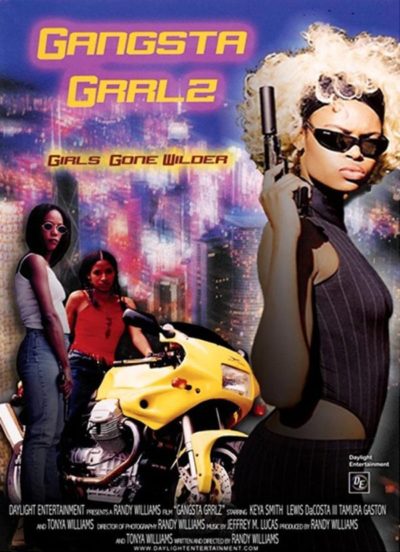 Not to be confused with the clearly different
Not to be confused with the clearly different 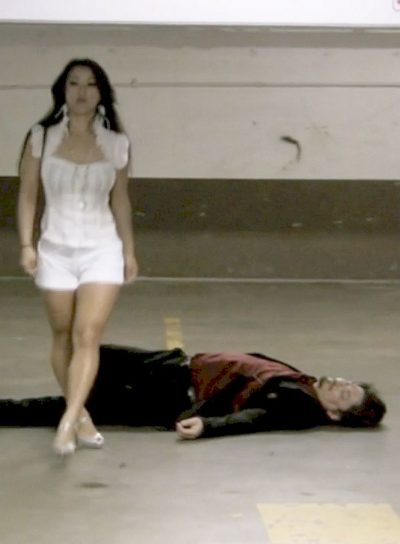 Tubi TV has become a goldmine of obscure, weird and,
Tubi TV has become a goldmine of obscure, weird and, 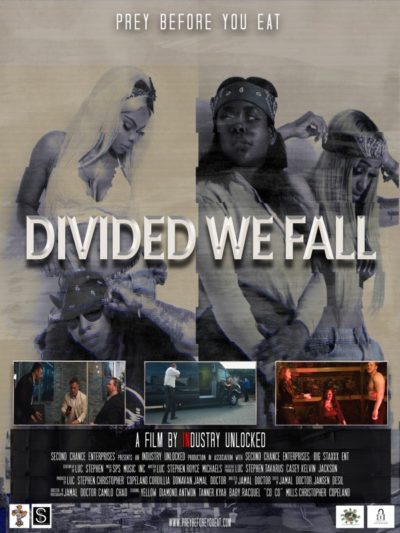 We begin with the usual disclaimer for films of this kind: middle-aged white guys like me are not the target audience. However, I think it’s fair to say that concepts like story-telling and character development are not limited to any particular race, colour or creed, so I still feel equipped to offer an opinion on these aspects. Though, actually, what felt like it worked best here was its strong sense of place. I’ve never been to the projects in Jamaica, New York (though Chris grew up elsewhere in the same borough of Queens). But the film does a good job of showing you that environment; it certainly works better than the (largely token) efforts to convince you some scenes take place in Miami, or even Moscow.
We begin with the usual disclaimer for films of this kind: middle-aged white guys like me are not the target audience. However, I think it’s fair to say that concepts like story-telling and character development are not limited to any particular race, colour or creed, so I still feel equipped to offer an opinion on these aspects. Though, actually, what felt like it worked best here was its strong sense of place. I’ve never been to the projects in Jamaica, New York (though Chris grew up elsewhere in the same borough of Queens). But the film does a good job of showing you that environment; it certainly works better than the (largely token) efforts to convince you some scenes take place in Miami, or even Moscow.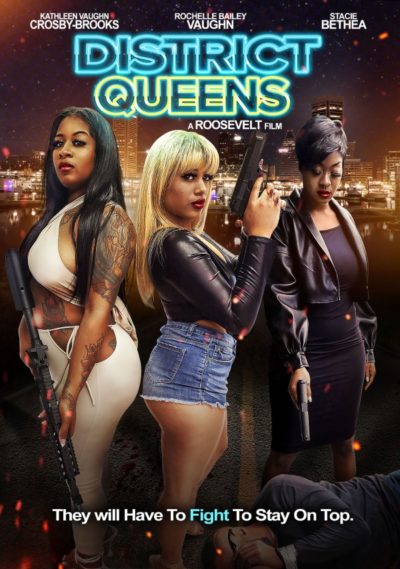 The latest stop in our ongoing tour of female-driven urban crime movies brings us to the nation’s capital in Washington, where the police are celebrating just having taken down a leading light in the city’s organized crime industry. Now, they set their sights on a new target: the gang led by Racine Robinson (Vaughan) and her two daughters, Kat (Crosby) and Candy (Bethea). These might prove a tougher nut to crack, since the Robinson crew have a harsh, zero tolerance policy to anyone who messes with them in the slightest, yet also gathered local support during the coronavirus pandemic. Indeed, Racine is so popular in the neighbourhood, a run for political office is not out of the question. However, she has rivals, who have more than a passing interest in seeing her taken out of the picture – albeit for very different reasons, in order to make room for them to rise up.
The latest stop in our ongoing tour of female-driven urban crime movies brings us to the nation’s capital in Washington, where the police are celebrating just having taken down a leading light in the city’s organized crime industry. Now, they set their sights on a new target: the gang led by Racine Robinson (Vaughan) and her two daughters, Kat (Crosby) and Candy (Bethea). These might prove a tougher nut to crack, since the Robinson crew have a harsh, zero tolerance policy to anyone who messes with them in the slightest, yet also gathered local support during the coronavirus pandemic. Indeed, Racine is so popular in the neighbourhood, a run for political office is not out of the question. However, she has rivals, who have more than a passing interest in seeing her taken out of the picture – albeit for very different reasons, in order to make room for them to rise up.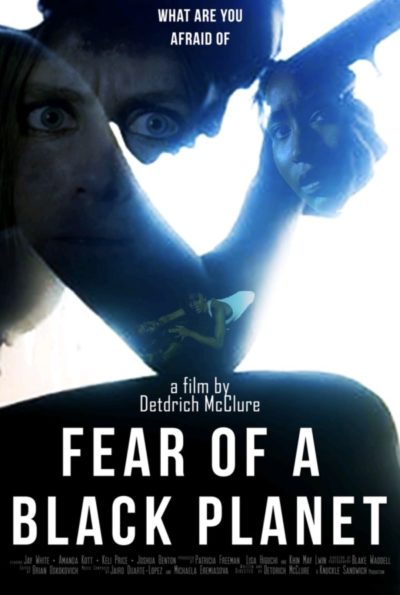 It’s interesting to look at the film’s IMDb page, and contrast the reviews, where there’s nothing less than an 8/10, with the rating, where 73% of votes are a 1/10. One “review” was actually a rant about other reviews which appear to have been removed? Something odd there. There’s no doubt, the film is not so much tackling a contentious topic, as driving head-first into it at 80 mph. Even the title (obviously inspired by the Public Enemy LP of the same name) is an incendiary one, guaranteed to raise the hackles of many – and, to be honest, not without reason, because of the assumptions it makes. It’s a shame, since the film is at least slightly more nuanced than the title makes it seem.
It’s interesting to look at the film’s IMDb page, and contrast the reviews, where there’s nothing less than an 8/10, with the rating, where 73% of votes are a 1/10. One “review” was actually a rant about other reviews which appear to have been removed? Something odd there. There’s no doubt, the film is not so much tackling a contentious topic, as driving head-first into it at 80 mph. Even the title (obviously inspired by the Public Enemy LP of the same name) is an incendiary one, guaranteed to raise the hackles of many – and, to be honest, not without reason, because of the assumptions it makes. It’s a shame, since the film is at least slightly more nuanced than the title makes it seem.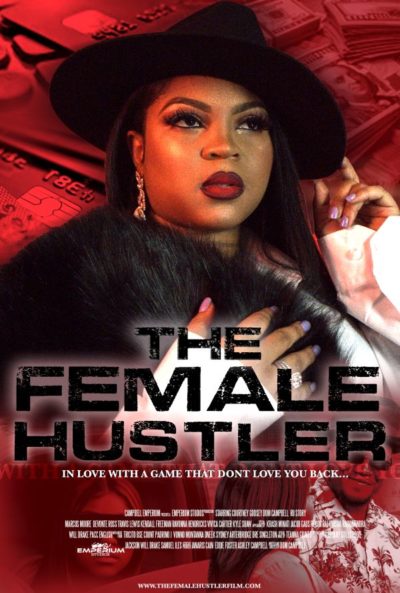 This is another one in the apparently endless series of low-budget urban movies, which focus on crime in the black community. Though this does actually have a couple of wrinkles which make it stand out, if not quite enough to make it a success for a wider audience outside its community. Columbus, Ohio is the setting, where Princess (Godsey) is struggling to make ends meet. She’s relying on handouts from her dodgy brother, Dae Dae, to make rent, and also wants to get her best friend away from her pimp. Opportunity comes knocking, in the shape of an Uber driver, Omar (Campbell), who brings her on board in his business, which he tells her has almost unlimited upside and growth potential.
This is another one in the apparently endless series of low-budget urban movies, which focus on crime in the black community. Though this does actually have a couple of wrinkles which make it stand out, if not quite enough to make it a success for a wider audience outside its community. Columbus, Ohio is the setting, where Princess (Godsey) is struggling to make ends meet. She’s relying on handouts from her dodgy brother, Dae Dae, to make rent, and also wants to get her best friend away from her pimp. Opportunity comes knocking, in the shape of an Uber driver, Omar (Campbell), who brings her on board in his business, which he tells her has almost unlimited upside and growth potential.